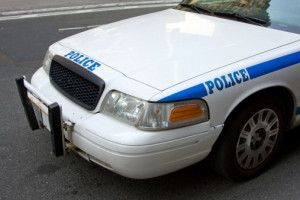Automatic license plate scanners ‘just like’ NSA surveillance, congressman says

By Eric Boehm | Watchdog.org
John Fleming sees plenty of parallels between police departments’ use of automatic license plate scanning technology and widespread electronic surveillance by the National Security Agency.
Both intrude on the privacy of innocent civilians who are neither suspected nor charged with a crime, all without civilians’ knowledge or consent. Both allow law enforcement to build a database of information about Americans’ everyday activities, again without legal authority or consent. And both are supported by federal taxpayer dollars taken from the wallets of the very individuals now subject to these new forms of surveillance.
KEEPING AN EYE OUT: More police departments are using automatic license plate scanners, but Congress is moving to cut off federal funding for those programs if they store license plate data for long periods of time.
Fleming, a Republican congressman from Louisiana, might not be able to do much about the NSA, but he’s championing an effort to ban police departments from using federal grants to buy license plate scanners.
An amendment added this week to an omnibus transportation bill working its way through Congress would also ban the use of federal money to help kick-start red light camera programs, speed enforcement cameras and other forms of municipal-level electronic surveillance.
Speaking on the floor of the House, Fleming compared the scanners used by many police departments to the so-called “meta-data” — data consisting of phone numbers called and the duration of calls but not the actual voice content — collected by the NSA.
Fleming’s fears are not unfounded: The ACLU found that state police in Virginia tracked the license plates of people who attended political rallies for Barack Obama and Sarah Palin in 2009.
On a more personal level, Watchdog.org’s Katie Watson discovered in April that police in Alexandria, Va., captured and saved 16 photos of her license plate over the previous six months.
Police say the scanners help officers more quickly assess the potential danger of pulling someone over: Were they simply speeding or do they have a history of violent behavior, too?
Law enforcement agencies argue that maintaining records from license plate scanners can help solve crimes more quickly, regardless of potential constitutional violations needed to achieve that goal.
Stricter rules are needed to tell police how long they can keep data obtained from scanners, said John Bowman, spokesman for the National Motorists Association, which opposes the use of scanners because of privacy violations.
“If the information isn’t immediately relevant to a crime, then there is no reason to keep it and it should be immediately deleted,” Bowman said.
Fleming said many states don’t have rules for how long license plate data can be kept, and he wants to start a debate about the proper role for such technology.
States and local governments may still buy license plate scanning technology on their own, but the federal government should not use tax dollars to subsidize those costs, Fleming said.
JUST A SIMPLE MISTAKE: Police in Prairie Village, Kan., learned first hand that license plate scanners can make mistakes.
U.S. Rep. Tom Latham, R-Iowa, was the only member of Congress to speak against Fleming’s proposal.
On the House floor, Latham said he worried about the unintended consequences of banning federal funding for license plate scanners – a move that would potentially put toll roads using similar devices in violation of the law.
“It simply will also have a lot of wide unanticipated operational impacts across all of the programs in this bill,” Latham said.
Even so, Fleming’s amendment was adopted in a 254-172 vote.
It’s unclear whether cutting off federal funding for license plate scanners will actually dent their growing popularity in American police departments.
Congress already banned the use of federal funds for red light camera programs in 2012, but the amendment would expand that ban to include speed cameras and license plate scanning technology.
Even without federal money, red light camera programs have proliferated. More than 500 municipalities in the country use the devices, according to the Insurance Institute for Highway Safety.
Nine states have banned the use of red light cameras, and others have unsuccessfully tried to enact bans— against the wishes of law enforcement groups and lobbyists for the camera companies.
Meanwhile, police departments have expanded the use of automated license plate readers and will probably continue to do so.
In a national survey by the Police Executive Research Forum, 71 percent of police agencies reported using license plate reader technology; 85 percent said they planned to increase usage.
But like all technology, scanners aren’t flawless: A Kansas man, his pregnant wife in a car with him, was greeted by the business end of a police officer’s gun during a traffic stop in April. The automatic license plate scanner in the officer’s cruiser had mistakenly read a “7” on the license plate as a “2.”
The federal bill would not prevent police departments from using federal funds to buy those devices, but it would ban departments from indefinitely storing the information gathered from automatic license plate readers.
The ban would last only until Congress has to reauthorize transportation spending and would only affect funding provided by the federal Department of Transportation.
Contact Eric Boehm at eric@paindependent.com







